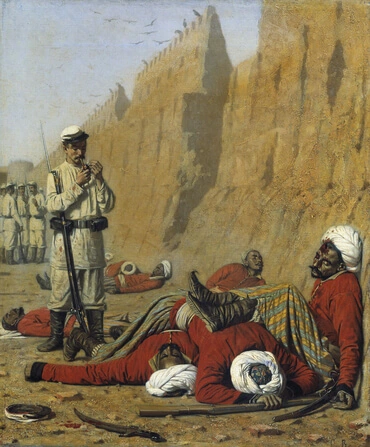1
เมื่อเราจะรักษาอิสราเอลให้หาย ความชั่วช้าของเอฟราอิมก็เผยออก ทั้งการกระทำที่ชั่วร้ายของสะมาเรียก็แดงขึ้น เพราะว่าเขาทุจริต ขโมยก็หักเข้ามาข้างใน และพวกปล้นก็ปล้นอยู่ข้างนอก
2
แต่เขามิได้พิจารณาในใจว่า เราจดจำการกระทำที่ชั่วทั้งหมดของเขาได้ บัดนี้การกระทำของเขาห้อมล้อมเขาไว้แล้ว การเหล่านั้นอยู่ต่อหน้าเรา
3
เขากระทำให้กษัตริย์ชื่นชมยินดีด้วยความชั่วร้ายของเขา กระทำให้เจ้านายพอใจด้วยการมุสาของเขา
4
เขาเป็นคนล่วงประเวณีทุกคน เขาเป็นเตาอบที่ร้อน ซึ่งช่างทำขนมหยุดเร่งให้ร้อนแล้วตั้งแต่เขาจะต้องนวดแป้ง จนแป้งจะฟูขึ้น
5
ในวันฉลองกษัตริย์ของเรา พวกเจ้านายทำให้พระองค์ป่วยด้วยขวดเหล้าองุ่น กษัตริย์ทรงเหยียดพระหัตถ์ออกพร้อมกับคนขี้เยาะเย้ย
6
ใจของเขาก็ร้อนด้วยการซุ่มดักทำร้ายเหมือนเตาอบ ตลอดคืนช่างทำขนมของเขาก็หลับอยู่ พอถึงรุ่งเช้าก็พลุ่งออกมาอย่างกับเปลวเพลิง
7
ทุกคนก็ร้อนอย่างกับเตาอบ และเขมือบผู้ครอบครองทั้งหลายของเขา กษัตริย์ทั้งสิ้นของเขาก็ล้มลง แต่ไม่มีใครท่ามกลางพวกเขาที่ร้องถึงเรา
8
เอฟราอิมเอาตัวเข้าปนกับชนชาติทั้งหลาย เอฟราอิมเป็นขนมปิ้งที่มิได้พลิกกลับ
9
คนต่างด้าวก็กินแรงของเขา และเขาก็ไม่รู้ตัว ผมของเขาก็หงอกประปรายแล้ว และเขาก็ไม่รู้ตัว
10
ความเย่อหยิ่งของอิสราเอลเป็นพยานที่หน้าเขาแล้ว เขาก็ยังไม่กลับไปหาพระเยโฮวาห์พระเจ้าของเขา เขามีเรื่องทั้งหมดเช่นนี้ เขาก็มิได้แสวงหาพระองค์
11
เอฟราอิมเป็นเหมือนนกเขาโง่เขลาและไร้ความคิด ร้องเรียกอียิปต์ วิ่งไปหาอัสซีเรีย
12
เมื่อเขาไป เราจะกางข่ายของเราออกคลุมเขา เราจะดึงเขาลงมาเหมือนดักนกในอากาศ เราจะลงโทษเขาตามที่ชุมนุนชนได้ยินแล้ว
13
วิบัติแก่เขา เพราะเขาได้หลงเจิ่นไปจากเรา ความพินาศจงมีแก่เขา เพราะเขาได้ละเมิดต่อเรา แม้ว่าเราได้ไถ่เขาไว้แล้ว เขาก็ยังพูดมุสาเรื่องเรา
14
เขามิได้ร้องทุกข์ต่อเราจากใจจริงของเขาเมื่อเขาคร่ำครวญอยู่บนที่นอนของเขา เขาชุมนุมกันเพื่อขอข้าวและขอน้ำองุ่น และเขากบฏต่อเรา
15
แม้ว่าเราจะได้ฝึกและเพิ่มกำลังแขนให้เขา เขาก็ยังคิดทำร้ายต่อเรา
16
เขากลับไป แต่ไม่กลับไปหาพระองค์ผู้สูงสุด เขาเป็นคันธนูที่หลอกลวง เจ้านายของเขาจะล้มลงด้วยดาบเพราะลิ้นที่โทโสของเขา เรื่องนี้จะเป็นเรื่องที่ให้เขาเย้ยหยันกันในแผ่นดินอียิปต์







